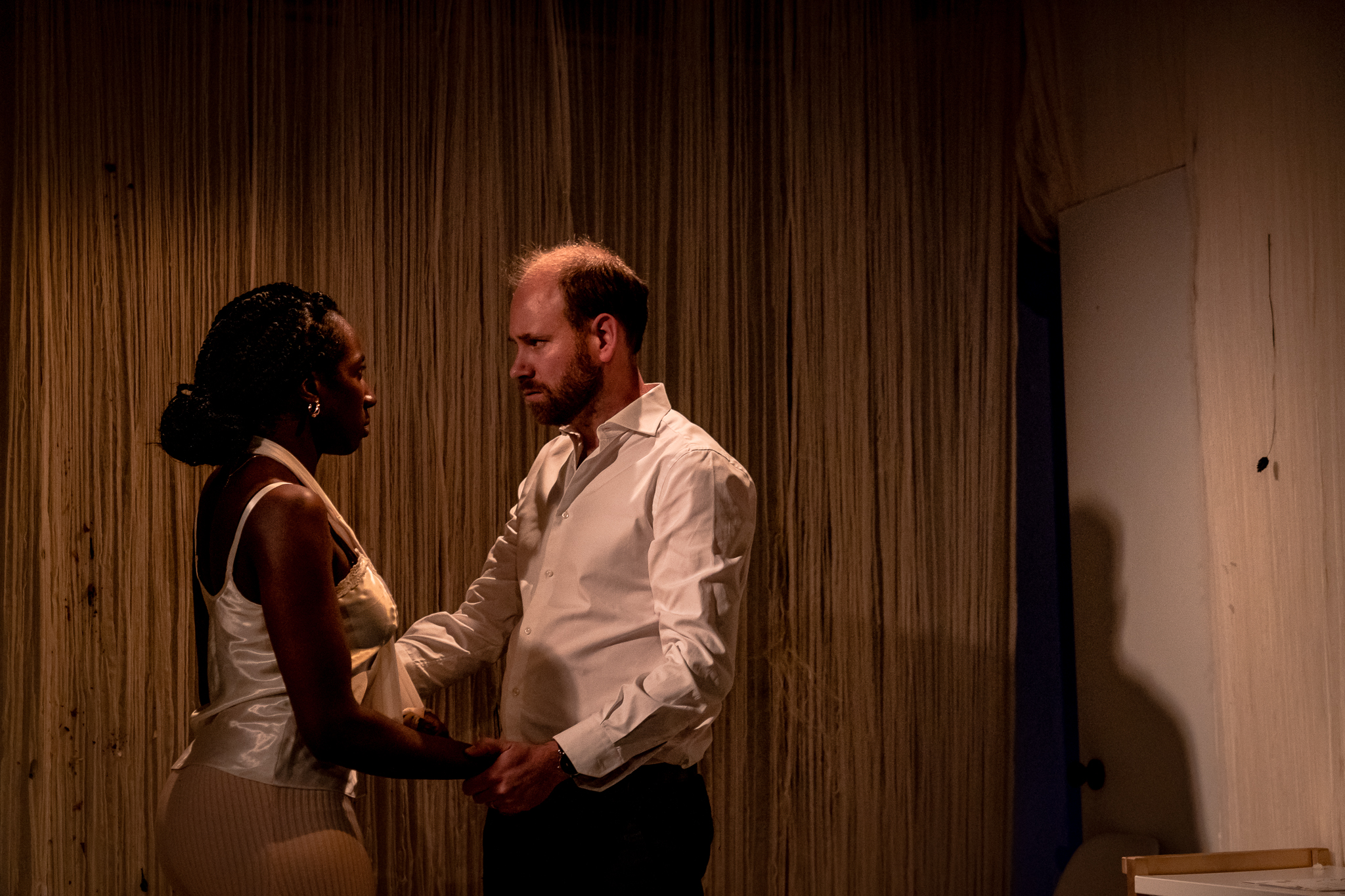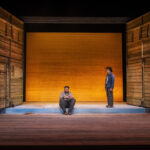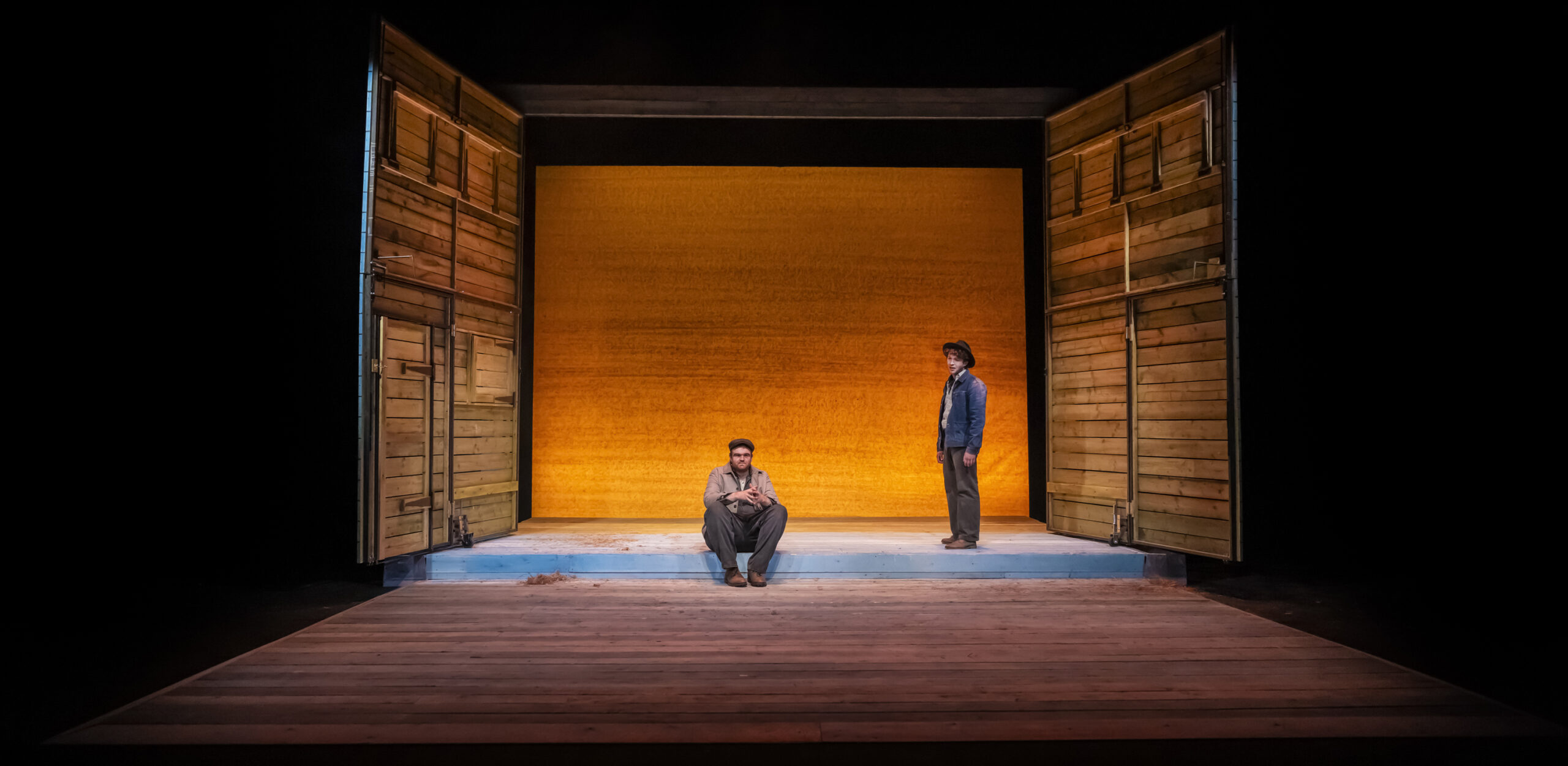by Luke Elliott
After the past two years we’ve all been forced to reckon with the mortality of those around us. Grief has hit millions of people in an event that was quite literally universal and is still so isolating. Til Death Do We Part, by Safaa Benson-Effiom and directed by Justina Kehinde, captures both those feelings around loss.
We open with an eerie montage of Daniel (Richard Holt) and Sylvia (Danielle Kassaraté) moving through the downstairs of their house with no dialogue, serving as an effective prologue. I went in as I always do, knowing as little as possible, but as a palpable feeling of loss filled the space and an ever-increasing amount of flowers appeared, I was able to hazard a guess at what had happened.
 |
| Danielle Kassaraté and Richard Holt. Photo: Steve Gregson |
Their son, Andrew (Jude Chinchen) appears and breaks the melancholy with youthful exuberance, practicing for a speech. There are many flashbacks that permeate the present, executed with sharp transitions that not only allow us a window into their past life but impart on us the feeling of being haunted by those loved and lost. It’s bittersweet seeing these often funny and lovely moments play out, knowing what was next.
The characters are rich with their layers: at first glance an overbearing mom, lax dad, and overachieving son, all trying to maintain those initial facades. The masks are obvious at times and a little surreal to watch play out. This is echoed beautifully in the set design (Emeline Beroud) where the curtained-walls are dotted with flowers but just behind them the bricks are growing – what I read as – mold. An imperceptibly decaying house.
 |
| Jude Chinchen. Photo: Steve Gregson |
As the dysfunction reared more and more of its body out the water, there were moments where the emotion felt like it was reaching a crescendo but fell just short for me. I was bracing for a gut-punch a couple times but didn’t receive one.
As timely as this play about grief is after (and still during) the pandemic, it also hits other themes which are incredibly recent. There have been discussions online about the use of social media after death and the respect for families and close friends who may find out that way. The scene that touched on that has stuck with me. The idea of etiquette in grief and the ownership of it is also something I’m left pondering as the distraught message from the grandmother rings in my ears.
 |
| Danielle Kassaraté and Richard Holt. Photo: Steve Gregson |
|
We don’t often see grief depicted with all the ugliness it can cause. We talk about it even less. To see a piece sit unflinchingly in that ugliness without reducing the characters to bad people or play with “right and wrong” is refreshing. Both Sylvia and Daniel are at times unlikable but always understandable, a testament to the writing and performance. Grief is not neat, it’s messy and selfish. A standout moment for me was the flashbacks replaying through the new-found perspective of the dad. It completely changed the colour of them and the sense of guilt and sorrow was profound.
Luke Elliott is an actor and writer from Birmingham. He now lives in South London and is passionate about stage, screen, and literature. His children’s picture book Lines, Lines, Lines! is available through Waterstones.


















